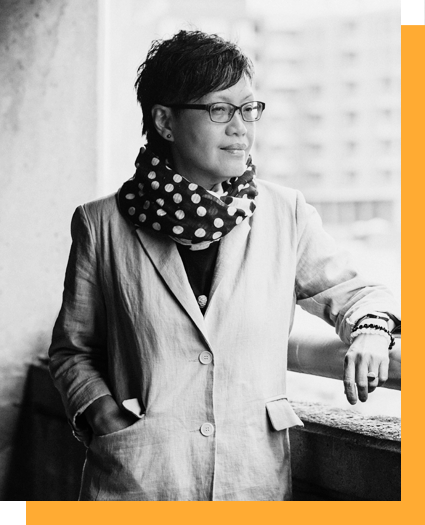Lydia Kwa
SELECTED POEMS
Father:Mother:Tongue
For the longest time, when questioned about mother tongue, I replied "Hokkien", the Chinese dialect we spoke at home. "My father's father was born in Fukien province, and left for Southeast Asia in his thirties." How did the confusion arise, my father's power and presence overwhelming language, the truth of mother tongue? The mistake of connotation, to mean "what is familiar, original" by the word "mother"?
My mother's tongue is Hakka, a high-pitched eruption of sounds: ni hee um hee, ngai mm hew ga gi hee. Raised on the lower, sometimes sibilant, sometimes hazy register of my father's tongue, the meanings of hers were foreign, glimpsed almost as rarely as street accidents. Like those annual Chinese New Year visits with grandmother when I sat quietly observing the patterned tiles beneath my feet, listening through gaps for the occasional, recognizable word.
I never mastered father tongue, stumbling through tangled mazes in mind and mouth, the language trapped inside. Wa bay hiaw kong, wa si-you chay chin kang kor. I cannot remember a time I thought in Hokkien, it has always been English, the language of foreigners, of colonialism. Everything I think and write, does it truly belong to me then?
Mother's is not father's is not English is not mine.
Going to school a temporary escape from the confusion of mother's and father's tongues razing the air with the fire of resentment and malice. A fever which spread through my body, delirium. English, my adopted language, charging me out of one prison, into another.
Now, I apply myself to the task of a borrowed language, becoming mine, yet never mine. For whom is English an exclusive right, birthright, language entrenching a colony of values? To write, to make room with words, is to de-colonize, to lead the woman-child out of the labyrinth where she had been lost for lack of tongues.
—————————————————————-
ni hee um hee, ngai mm hew ga gi hee—Are you going, I don't think I can find the way myself?
Wa bay hiaw kong, wa si-you chay chin kang kor—I don't know how to say it, I think this is very difficult.
by Lydia Kwa
from The Colours of Heroines (1994)


